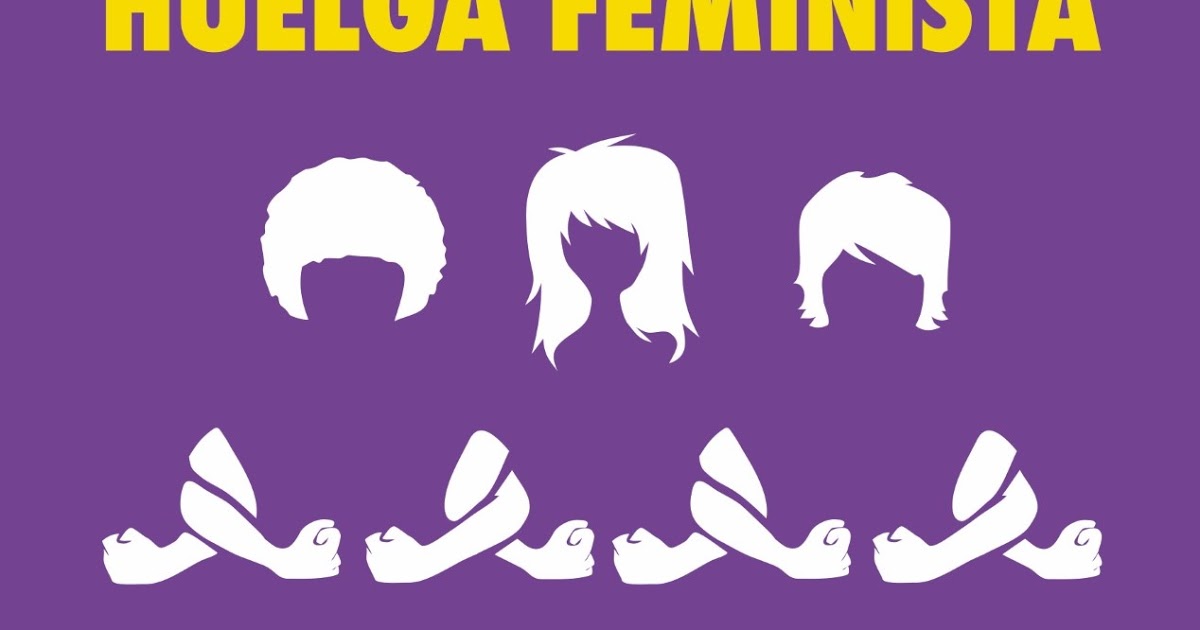
On the 8th of March 2018, on International Women’s Day, Spanish women are planning on holding a nationwide 24 hour strike combined with several marches to show that the world stops when women abandon roles in both public and private spaces. The call for the strike stems from the 8M Commission, which is an umbrella group of feminist organisations in Spain. The strike is aimed at issues such as unfair wages, lacks stances on domestic violence, and the country’s prevailing macho culture. The strike deems to understood within the Spanish context where despite making up 51% of the population and holding more than 50% of the university degrees in the country, women in Spain, only make up 28% of civil servants, and only 19% of mayors. The country further has gender pay gap of 13%, and women occupy 75% of part time contracts. This is connected to the unpaid work of childcare and care giving which is still almost exclusively done by women and further ties into the ‘pension-gap’, where women make up only 36% of people in retirement and with a right to a pension. 99 women were further killed by their partners last year. These numbers of course exclude daily and lived micro-agressions experienced by women and thus only point to the tip of a sexist, but hopefully melting, iceberg.
This women’s strike and the accompanying marches in the Spanish, and more specifically the Catalan context, however also opens up the discussion of the positioning of women’s movements in larger nationalist movements. While my Spanish and Catalan, at the moment, is sadly still quite non-existent, I am still very curious if I will be able to notice specific Catalan or Spanish nationalist overtures at the women’s march in Barcelona tomorrow, or if nationalist critiques will be present in the coverage of the march in Barcelona. Hereby fitting in with the historically exhausting and problematic arguments of “now is not the time” and “this is dividing, instead of uniting us”. In my mind, and in the minds of those far more knowledgeable on this subject than me, the reason that such arguments have historically been repeated over and over again, is because nationalist projects have overwhelmingly relied on normative heterosexual conceptions of the nation, where women were mainly positioned as symbols of the nation, but not actual actors. As Morcillo has pointed out in his book The Seduction of Modern Spain: The Female Body and the Francoist Body Politic (2010), the representation of women and their role in the family was key to Franco’s attempts to combat a perceived ‘moral degeneracy’. Women became the face of the nation on the basis of traditional religious values, purity, and domestication, aka ‘mothers of the nation’. The repression of women under the Franco regime however propelled a feminist conscientiousness (Nash, 2013), and in the transition period women’s movements campaigned for new laws on divorce, abortion, and birth control, and led to the creation of a dynamic women’s movement in Catalonia and led to new female identities and roles (Nash, 2007), that went beyond the whole ‘mothers of the nation’-stick.
In a recent article from 2017 titled Gendered Dimensions of Catalan Nationalism and Identity Construction on Twitter, Mandie Iveson however shows that the nationalist trope of women as ‘mothers of the nation’ is still very much prevalent, with women still often being represented as having a purely reproductive and symbolic role. Iverson quite interestingly states that this gendered representation has “become so banal that it is commonplace to project a nationalist project in this way. Therefore rather than masculine, this is a naturalised nationalism with a particular type of male at the forefront” (Iverson 2017). I agree that the tropes of nationalist movements have become so reproduced that they become almost unquestioned in their gendered dimension. I however wonder if it might be possible to strive for nationalist goals, while simultaneously deconstructing the heterogenic masculine notions that underpin many of these nationalist tropes. For this reason I am very interesting in observing and partaking in the women’s march in Barcelona tomorrow, to see in what way nationalist tropes might be visible there, and if these will reproduce masculine notions, or if they will in fact deconstruct and dismantle them, or if in fact, any nationalist tropes will be visible at all.
As always, keep it wavey in the free world.
Tsjalling
References:
Nash M (2007) Dones en Transició. De la resistència política a la legitimitat feminista: Les dones en la Barcelona de la Transició [Women in Transition: From Political Resistance to Feminist Legitimacy in the Barcelona of the Transition]. Barcelona: Ajuntament de Barcelona.
Nash M (2013) Resistencias e identidades colectivas: El despertar feminista durante el tardofranquismoen Barcelona [The feminist awakening during late Francoism in Barcelona]. In: Nash M (ed.) Represión, resistencias, memoria: Las mujeres bajo la dictadura franquista [Repression, Resistance, Memory: Women Under the Francoist Dictatorship]. Granada: Editorial Comares, pp. 139–158.
Iveson, M. “Gendered Dimensions of Catalan Nationalism and Identity Construction on Twitter.” Discourse and Communication 11.1 (2017): 51-68.
.